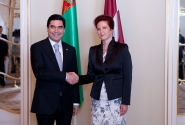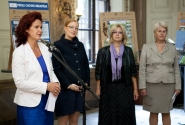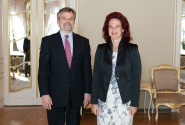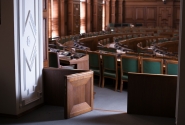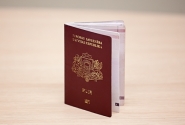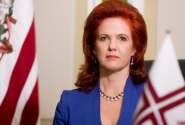Āboltiņa: Turkmenistan is a promising partner for economic cooperation in Central Asia (12.09.2012.)
Turkmenistan is a promising partner for our country in Central Asia, and all the necessary prerequisites exist in order to develop closer economic cooperation, emphasised Solvita Āboltiņa, Speaker of the Saeima, on Tuesday, 11 September, when meeting with the President of Turkmenistan, Gurbanguly Berdymukhammedov, in the main building of the Saeima.






